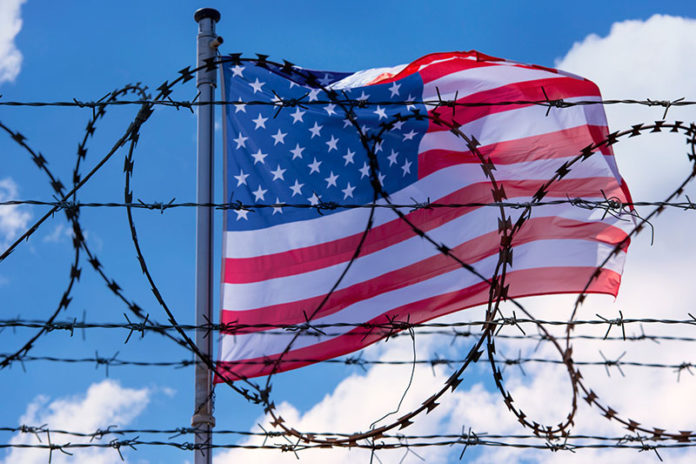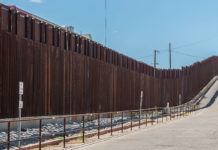Earlier this year a congressional probe revealed that migrants from terrorist nations are trying to enter the United States through Mexico at record rates. Among the most alarming statistics included in the investigative report was an astounding 300% increase in Bangladeshi nationals attempting to sneak into the country through Texas alone. This month federal authorities arrested a Mexican-based Bangladeshi smuggler in Houston and charged him with bringing in 15 fellow countrymen through the Texas-Mexico border.
His name is Milon Miah and he lives in Tapachula, in the southeast Mexican state of Chiapas bordering Guatemala. Just a few months ago Judicial Watch reported large groups of Africans, Indians, Bangladeshis, Afghans, Syrians and Pakistanis are in Tapachula awaiting asylum in the U.S. as part of the monstrous Central American caravan.
Africa is a hotbed of Islamic terrorism, according to the State Department, and Bangladesh is a south Asian Islamic country well known as a recruiting ground for terrorist groups such as the Islamic State of Iraq and Syria (ISIS) and Al-Qaeda Indian Subcontinent (AQIS). Last year 630 Bangladeshi nationals tried to enter the U.S. illegally in Laredo, Texas alone, marking the 300% increase from the previous year.
The figures help confirm what Judicial Watch uncovered years ago as part of an ongoing investigation into the national security threats created by the porous southern border; Mexico is a hotbed of Islamic terrorism that immediately threatens the U.S. Islamic jihadists are training in southern border towns near American cities and have joined forces with Mexican drug cartels to infiltrate the United States. A few years ago, a high-ranking Homeland Security official confirmed to Judicial Watch that Mexican drug traffickers help Islamic terrorists stationed in Mexico cross into the U.S. to explore targets for future attacks.
Among the jihadists that traveled back and forth through the porous southern border was a Kuwaiti named Shaykh Mahmood Omar Khabir, an ISIS operative who lives in the Mexican state of Chihuahua not far from El Paso. Another was a Saudi Al Qaeda operative, Adnan G. El Shurkrjumah, wanted by the Federal Bureau of Investigation (FBI) during his cross-border jaunts.
Lately Bangladesh has had a greater presence in the Mexican border region though Syria and Yemen are also well represented. In the recent Texas case, the Bangladeshi smuggler was arrested after arriving on a flight at George Bush Intercontinental Airport in Houston.
The feds say that, from March 2017 to August 2018, Miah brought 15 Bangladeshi nationals to the United States at the Texas border in exchange for payment. He housed and fed the illegal aliens in Tapachula then provided them with plane tickets to locations in northern Mexico, according to federal prosecutors. One of his associates, Moktar Hossain, has pleaded guilty for his role in the illicit scheme.
Hossain handled operations in Monterrey, in the northeastern Mexican state of Nuevo León, where the aliens would stay before the last leg of their trek to the United States. “Hossain paid drivers to transport the aliens to the U.S. border, and gave them instructions how to cross the Rio Grande River,” according a statement issued by federal prosecutors in Texas.
The Miah-Hossain operation is part of a broader crisis involving a growing demographic of illegal aliens from terrorist nations entering the U.S. through the Mexican border. The government classifies them as Special Interest Aliens (SIA) and they are flowing north via Latin America in huge numbers thanks to established Transitional Criminal Organizations (TCO) that facilitate travel along drug and migrant smuggling routes. Tens of thousands of SIAs—from the Middle East, Asia and Africa—entered Panama and Colombia in the past few years. Nearly all the SIA migrants were headed to the United States and most came from Syria, Pakistan, Afghanistan, Somalia, Bangladesh and India.
Encounters with the special interest individuals resulted in the seizure of tens of thousands of fraudulent documents—including passports and visas—that facilitated travel from their countries of origin through the Americas, according to the previously cited congressional investigation.






























